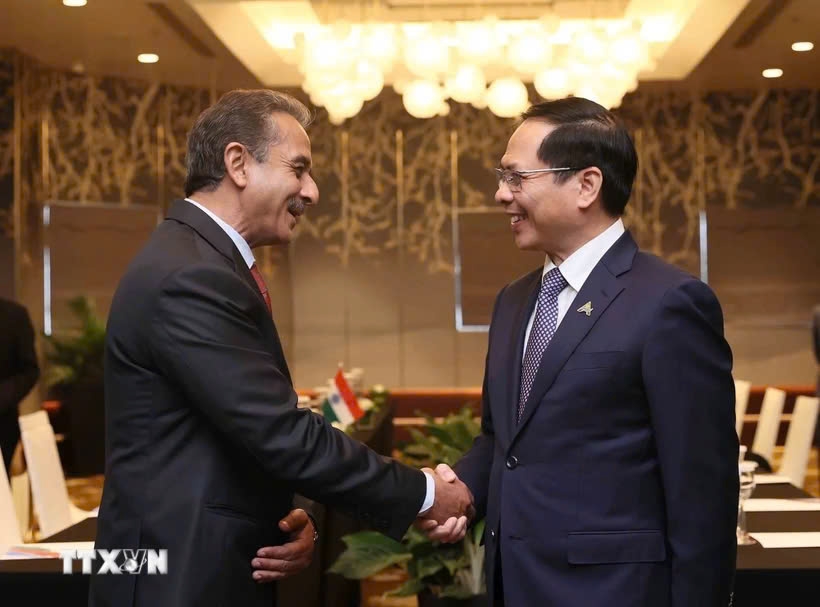Vietnam holds important position in India’s Act East policy: Indian diplomat
VOV.VN - Vietnam is an important partner in India’s “Act East” policy, affirmed Kirti Vardhan Singh, India’s Minister of State for External Affairs during his meeting with Deputy Prime Minister and Minister of Foreign Affairs Bui Thanh Son in Hanoi on February 25.

Singh, who is in Hanoi for the second ASEAN Future Forum, congratulated Vietnam on successfully organizing the ASEAN Future Forum, thereby reinforcing ASEAN’s central role in regional architecture and elevating Vietnam’s position and influence.
The Indian diplomat highly appreciated the strong political trust built between the two countries through numerous visits and engagements at various levels and channels. He also acknowledged the effective maintenance and promotion of cooperation mechanisms across key sectors, providing a solid foundation for practical and substantive collaboration.
In response, Son affirmed that Vietnam highly values its traditional friendship and Comprehensive Strategic Partnership with India. He expressed satisfaction of the significant progress in bilateral relations, particularly following Prime Minister Pham Minh Chinh’s state visit to India in August 2024.
He proposed that both sides actively coordinate to effectively implement the outcomes of the visit, including the Action Plan for the Vietnam-India Comprehensive Strategic Partnership for 2024-2028.
Both sides agreed to strengthen high-level reciprocal visits and engagements. The India diplomat confirmed that India would send a high-level delegation to Vietnam to attend the United Nations Vesak Day celebration in May 2025.
The two sides vowed to deepen cooperation in defense, security, economy, trade, investment, science and technology, climate change response, and maritime security. They pledged to double bilateral trade and investment while facilitating major investment cooperation projects in strategic areas such as transport infrastructure, logistics, high technology, rare earth minerals, and oil and gas.
Emphasizing the shared values and common interests between Vietnam and India in fostering a peaceful, stable, and prosperous region based on the rule of law, Singh reaffirmed India’s commitment to working closely with Vietnam and ASEAN.
He expressed India’s strong support for ASEAN’s central role in a rules-based regional structure and advocated for resolving disputes in the East Sea through peaceful means, in accordance with international law, including the 1982 United Nations Convention on the Law of the Sea (UNCLOS).




